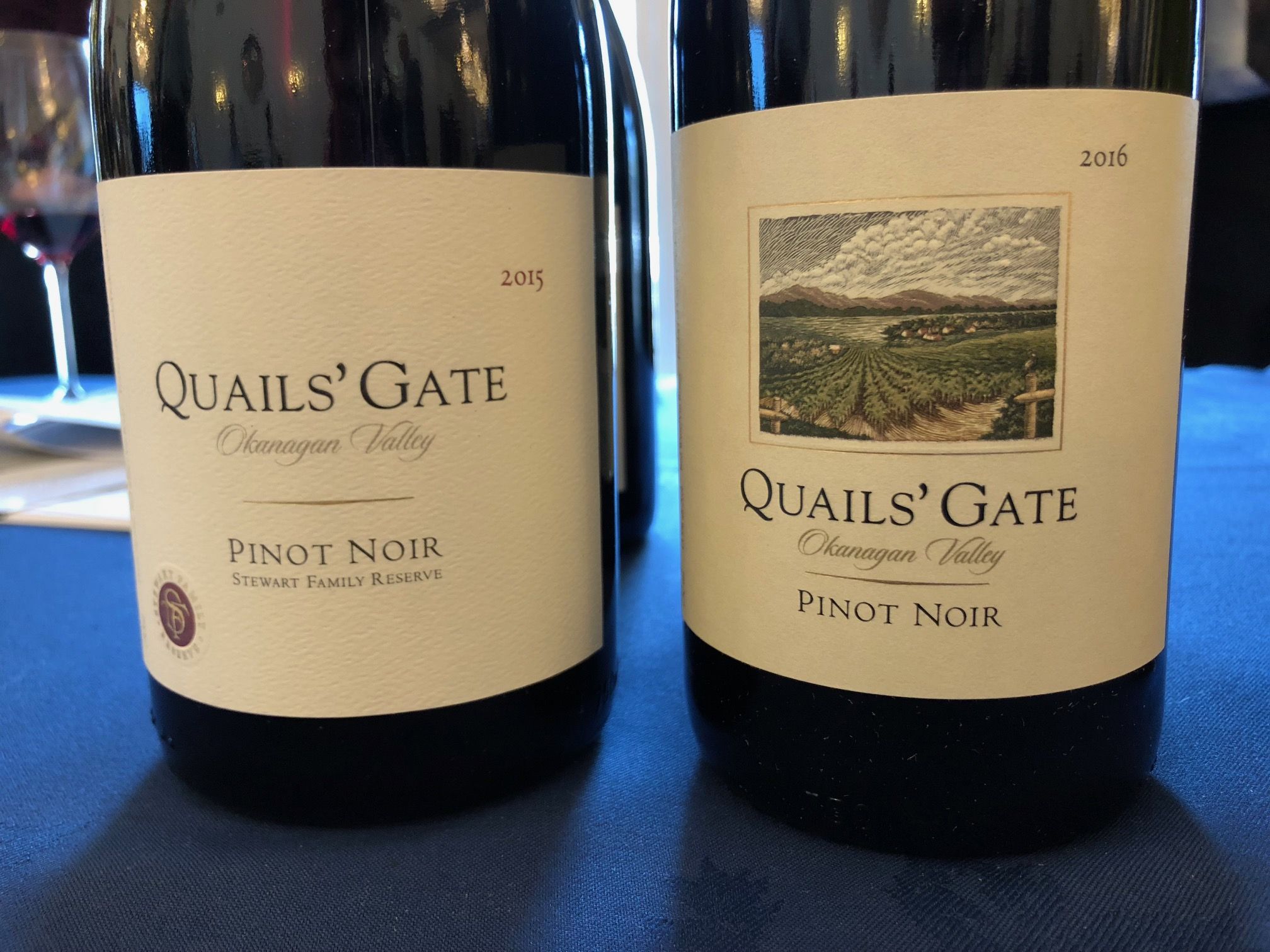Wines of South Africa’s Sommelier Cup is a global competition with the finals taking place in Cape Town in September. But first up is the UK competition to see which sommelier will be going forward to compete in those finals. Here’s Jo Wehring, head of WOSA in the UK to explain how the competition and entry process works.
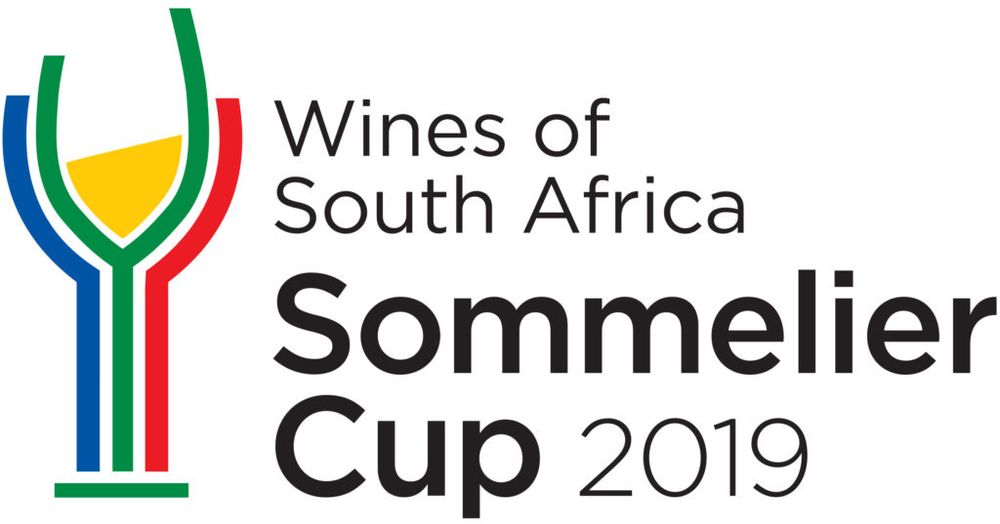
Why was the competition introduced?
Wines of South Africa launched the Sommelier Cup in 2010 as part of activities around the football World Cup, which was held in the country that year. Originally intended to be a one-off event, the competition was a great success, attracting top sommeliers from around the globe, so it was decided to repeat the competition every three years as part of the ongoing plans.
Building a relationship with leading sommeliers was a good fit with the Wines of South Africa strategy to focus on building a premium image of the wines and the premium on-trade was a clear area for growth in all the key export markets. At the time the image of South African wines was developing and there was interest from the sommelier community in learning more about South Africa.
The competition combines a number of elements: education, raising awareness of the wines, and then visiting the Cape winelands and experiencing all that South Africa can offer – beautiful landscapes, exciting culture, world-class tourism, warm hospitality and great wines.
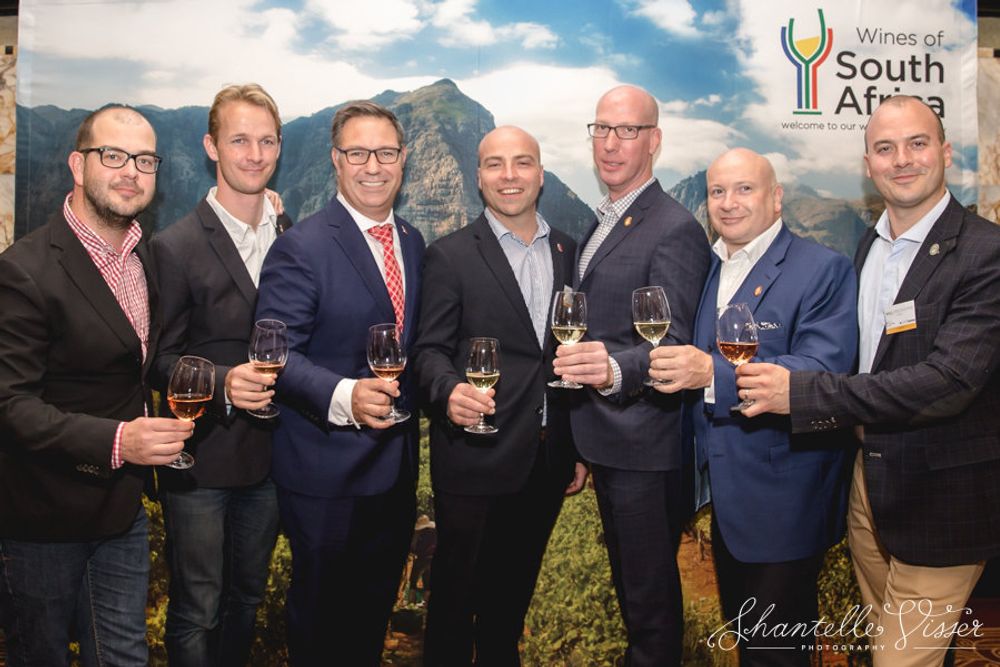
The judges for the 2016 Sommelier Cup final
The competition happens in two stages. Locally and then globally. Can you explain that process and why it is done that way?
For the UK, the first round of the competition is held in London, at 67 Pall Mall, throughout the day on Monday June 10. Entrants can visit at any time during the day, from 10.00-6pm, allowing 90 minutes to complete the test.
The London round consists of a multiple-choice exam, blind tasting of three South African wines and short interview with judges, Ronan Sayburn MS (67 Pall Mall) and Greg Sherwood MW (Handford Wines). There is also a free pour wine tasting throughout the day, which entrants can enjoy at leisure. This year the tasting will include many of the 2019 Platter Wine Guide 5 Star wines, so some real gems to taste.
The winner from the UK, along with the other country winners, travels to South Africa in September (18-26) to take part in the final round on September 21, where one entrant will be named winner of the Wines of South Africa Sommelier Cup 2019. Following the final competition all the country winners can relax and enjoy visiting the winelands for a memorable trip to this exciting and dynamic wine producing region.
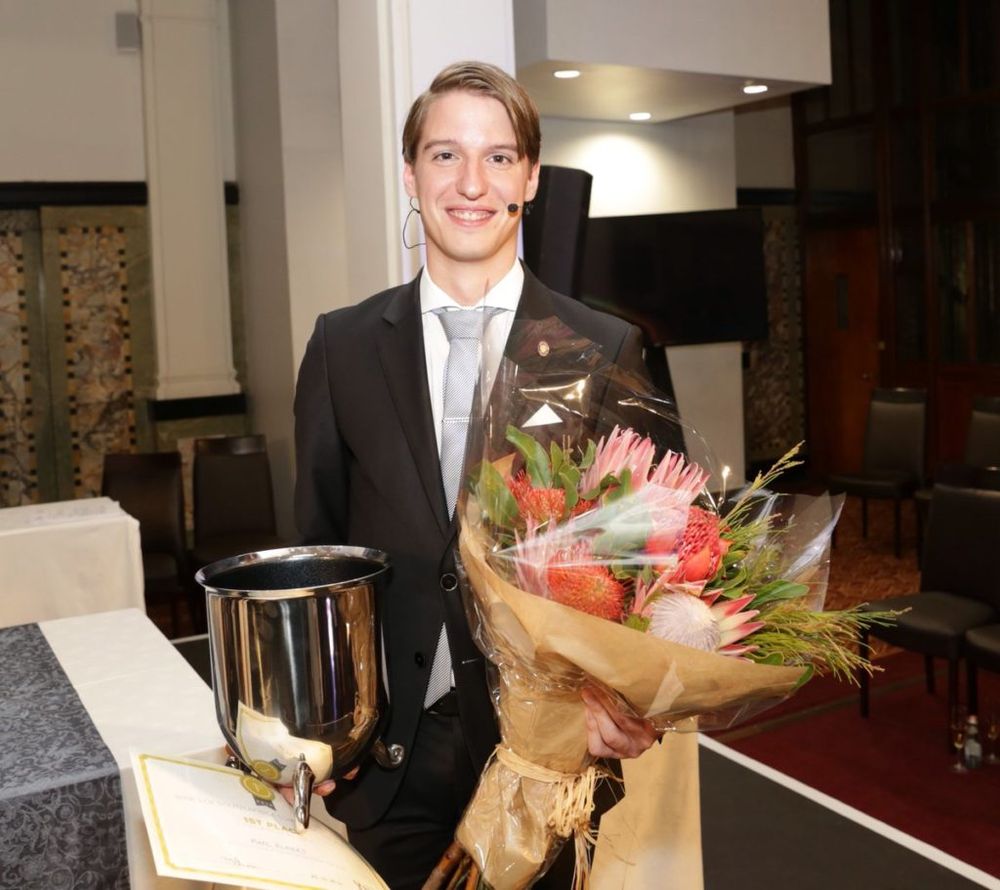
Marc Almert, who is now the ASI Best Sommelier of the World 2019, was the overall 2016 winner of Wine of South Africa’s Sommelier Cup
What level of sommelier are you hoping to attract to take part?
Over the years, this year will be the fourth round of the competition, we have had entries from many of the world’s leading sommeliers, so the standard is naturally very high – entering competitions of this nature seems to require a level of commitment that comes with being a leader in your sector. However, we are looking for people with passion, enthusiasm and a desire to get under the skin of South African wines, not only the biggest names in the industry. If you are keen to immerse yourself in South African wines and work as a sommelier then that’s very welcome.
You are in charge of the UK judging process. What are sommeliers expected to do on the actual day of the judging?
The multiple-choice exam is all about factual knowledge on South Africa, from things such as the varieties planted to understanding of different regions and the history of winemaking. We also ask the entrant to think about different dishes and the types of South African wines that they might recommend to pair with them. The blind tasting is about showcasing the tasting skills, we look at the approach to how they taste and the notes made, it’s not just about guessing the right wines but how the sommeliers go through the tasting process.
Finally, a chat to our independent judges to assess their passion for wine and why they should be the worthy winner of the UK round. Greg and Ronan share so much expertise so their opinions are vital to the process. They are very friendly though!
Who are this year’s judges for the final?
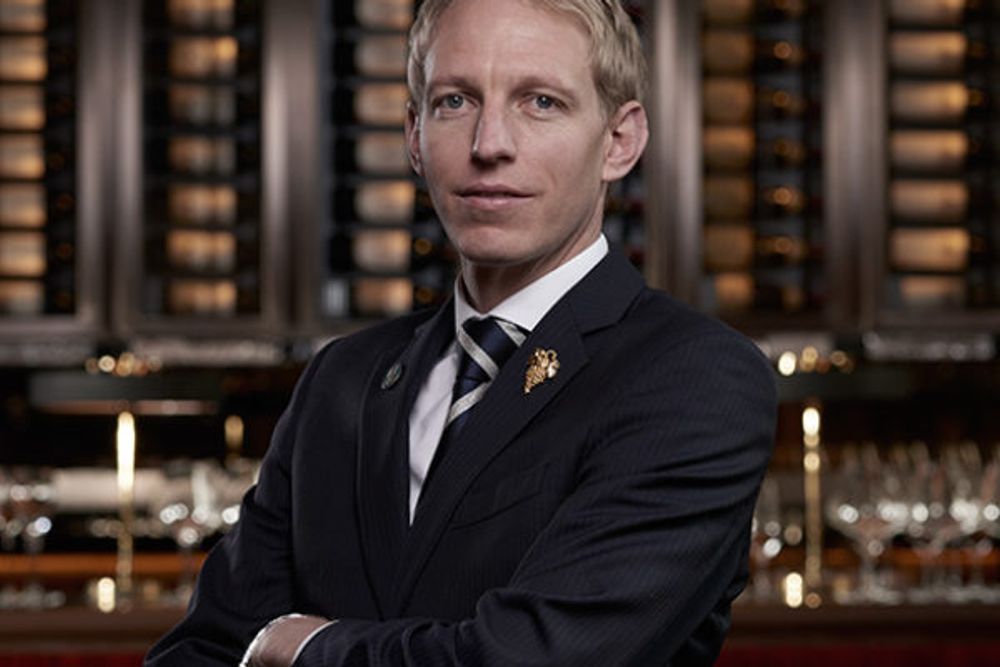
Gareth Ferreira, head sommelier at Core by Clare Smyth is one of the overall judges this year
The judges for the final in South Africa are:
- Marc Almert, head sommelier at Restaurant Pavillon, Baur au Lac (and now ASI Best Sommelier of the World 2019)
- Sören Polonius, trainer and head coach of the Swedish national sommelier team, ‘Swesomm’ and wine director for the Adam/Albin Restaurant Group
- Gareth Ferreira, head sommelier at Core by Clare Smyth.
https://www.wosa.co.za/Sommeliercup/SomCup19-Judges/
Wines of South Africa partners with the South African Sommelier Association (SASA) to develop the written and practical tests for the final round.
Who has won the UK competition in the past?
2010 Alan Holmes, Chewton Glen
2013 Terry Kandylis, The Ledbury
2016 Eric Simonics, The Savoy
Any advice for sommeliers on how best to get through the entry process?
The Wines of South Africa website www.wosa.co.za is a brilliant resource for learning about South African wines and there’s plenty of reading materials and presentations to get you familiar with all the facts easily. There is also an online wine course on the website for additional guidance.
How important is the premium on-trade in the UK to the overall South African wine category?
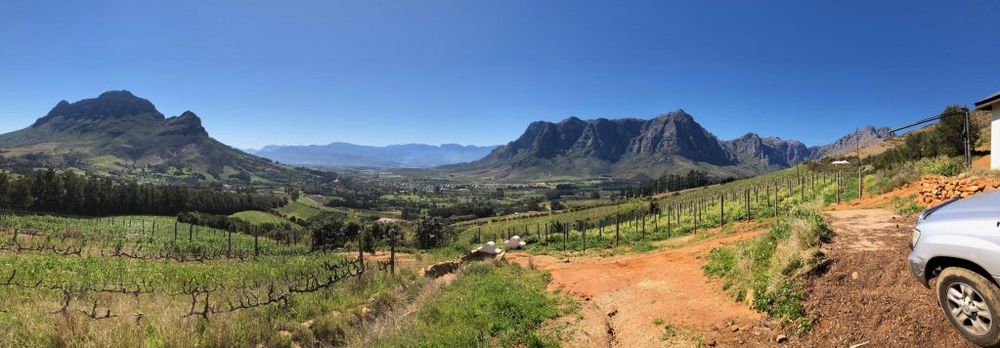
The South African landscape offers a diverse range of great quality, but also brilliant value for money wines for the premium on-trade
The premium on-trade is very important to South Africa in the UK market and an area where we have seen significant change in the nine years since we launched the Sommelier Cup. It’s a sector where many of our smaller, boutique producers have been able to do very well, the personalities and stories of these kinds of wines works well in this environment, there’s plenty to engage with the consumer over. In addition, many of the premium South African wine styles work well with food – culturally food plays a vital role in social occasions in South Africa and the high-end restaurant scene in the Cape means the winemakers are very familiar with international food trends.
What styles and price points are working best in the premium on-trade?
Much of the appeal of South African wines is the sheer variety of styles and grapes that the country produces. The influence of the two oceans and mountain ranges means that the Cape has huge diversity in regions and terroir, add to this an experimental winemaking mindset and what you find is that there are many different options for the on-trade buyer to explore.
It’s fair to say that Chenin Blanc is a great calling card for South Africa and works well on the restaurant scene where it offers something different, with a strong link to the country, Chenin is also extremely food-friendly. Mediterranean varieties and blends are also very popular in the on-trade and lighter style reds are working well, with varieties such as Cinsault seeing an interesting revival.
South Africa does well in the £30 – £40 price range and is known for delivering good value but we’re now seeing a sizeable increase in South African wines on lists at higher price points, with many of our well-respected producers featured on list at around £50 – £70 and some of South Africa’s best wines on lists at £100 and upwards. For the premium on-trade there’s the appeal that it’s possible to list South Africa’s very top producers at affordable prices.
What recommendations would you give to a restaurant /sommelier about how they can improve their premium South African offering?
If you can, get out to tastings and try the wines. The wine scene in South Africa is fast-paced and there’s been a huge amount of change in terms of styles, new producers and new initiatives – South Africa is certain to surprise and perceptions are still changing.
Any other thoughts?
The story of old vines is one that has captured the imagination of many UK buyers and commentators and these wines are worth exploring for any sommelier wanting to learn more about South Africa and find some fantastic wines at the same time. Visit http://oldvineproject.co.za/ for more information.
- To enter the 2019 Sommelier Cup competition click here.









